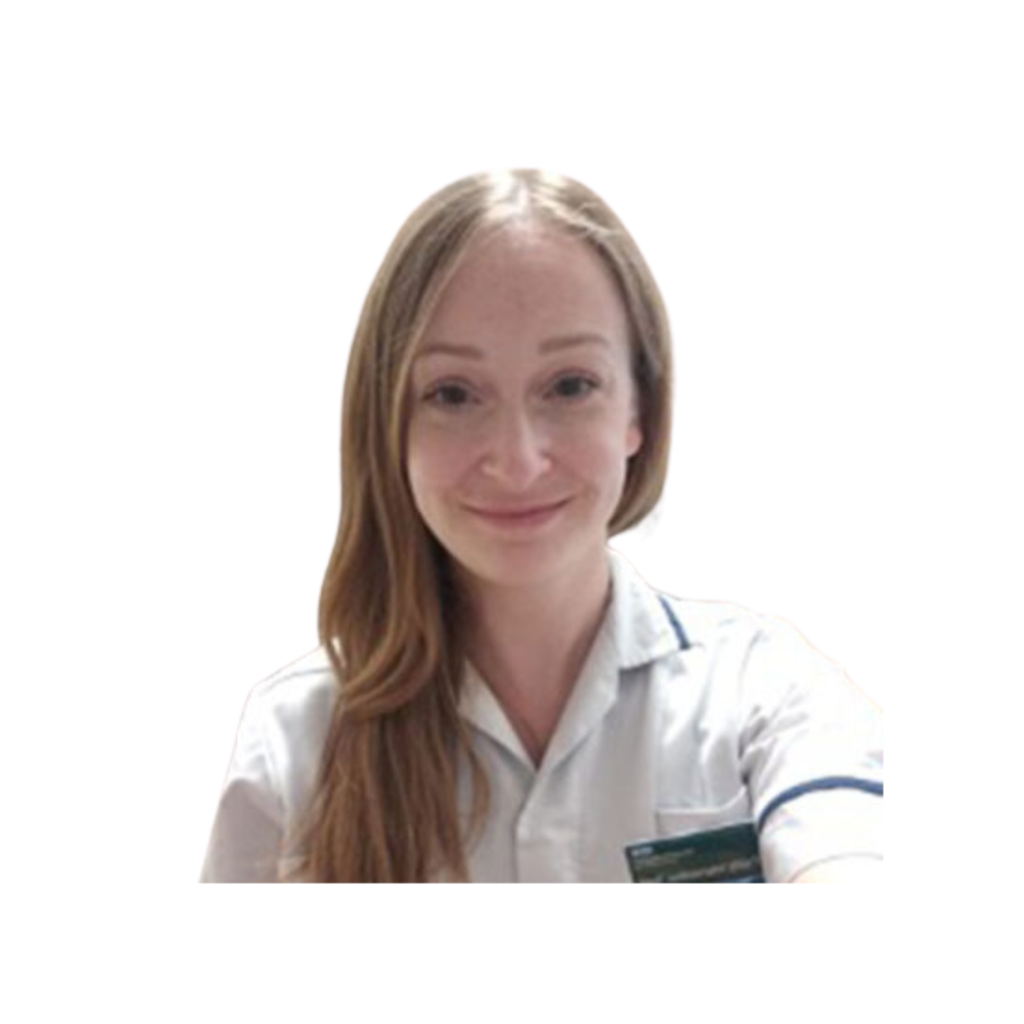Job Title
Frailty Specialist Physiotherapist
Where are you based?
Hospital
Is your role clinical or non-clinical?
Clinical
When you were at school, did you want to join the NHS?
I didn’t know what I wanted to do when I was at school and didn’t realise I wanted to work in the NHS until I was an adult. Then I had to figure out how to get onto the career path I wanted.
What qualifications did you have when you joined the NHS?
I originally did a BTEC in Interior Design because I liked the sound of it and I wasn’t sure what I wanted to do. Later in life, when I figured out my career path, I didn’t have the qualifications to get onto the course so I went back to college as an adult to complete an Access to Higher Education course. This enabled me to get into University and get my BSc in Physiotherapy.
How did you come to work in the NHS?
I left school with my GCSEs and then went to college because I didn’t know what else to do. I studied Interior Design because it sounded fun but didn’t see a career in it. I then moved across the country and worked in a factory for several years but still wanted to find that thing that gave me the spark. I enrolled on a massage course to learn a new skill and found I really enjoyed the anatomy and physiology aspects and liked the detective work of trying to figure out why someone was in pain. I later volunteered in my local hospice, providing massage for people with life limiting conditions and their relatives and carers. Exploring the anatomy, physiology and mechanics of the human body and making a difference for patients led me to a career in NHS Physiotherapy.
Briefly explain your job
I work in a Clinical role as a Frailty Specialist Physiotherapist. I see older, frail patients who have come into A&E or been admitted to the hospital. They might have fallen, become more unsteady on their feet or become confused resulting in them needing to come to hospital. I work with the patients and their families or friends to figure out what is most important to them. I explore all aspects of their lives and what they might be struggling with and make a plan to keep them as healthy, happy and independent as they can be. I might run around the whole hospital speaking to different departments to get the right referrals made, phone charities to organise feeding for a beloved pet left behind in a hurry, get hearing aids checked so they can understand the doctors, assess strength, balance and figure out why they might be falling and build confidence to get them back to walking independently. Sometimes I work in an outpatient clinic to help solve these problems before they come into hospital. Sometimes I work with the ambulance service during emergency visits to prevent people being brought into hospital. Being a specialist, other clinicians come to me for advice and I provide education in the hospital and stand up for older people’s needs in how services are developed. I also get to work on projects to improve how we treat older people in hospital and get involved in research and present my findings.
What do you love about your job?
I love that I get paid to do what I’m passionate about. It’s great to know that I have made a difference and improved someone’s life and experience in a worrying time. I love having the time to really listen and figure out what’s important to a person. I enjoy the detective work involved in figuring out what the problems are, why they are happening and the trial and error in solving the problems. I like the creativity of coming up with a plan and being able to alter it if it doesn’t work for the patient.
What is challenging about your role?
The patients I work with are unwell and unfortunately this means they don’t always get better. It can be difficult to work so closely with patients and their families without becoming attached and it is important to learn how to cope with this.
Is there career progression in your role and how would you get there?
I have progressed quite quickly in my role and there are still more progression opportunities. As a specialist, I continue to learn and develop clinically with experience, but my Trust also invest in my learning. I am being funded to complete a Masters level (MSc) module next year and my Trust are supporting me to progress through a new route to become an Advanced Clinical Practitioner.
What would you say to a young person thinking of joining the NHS?
Even if you don’t immediately think of a career in the NHS, there are so many different roles and specialities that you never know what might suit your particular interests and skills. I always thought Physiotherapy was for sporty people but you can be a Physiotherapist and work within of different areas and roles. The same is true for most clinical roles. You never know what you might find that might be a perfect fit for you.

